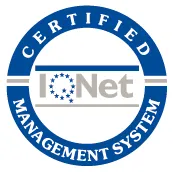
Employee motivation is one of the fundamental pillars for the success of any company. Motivation refers to the internal and external factors that drive employees to perform their work efficiently and effectively. Not only is this concept crucial for productivity, but it also plays an essential role in talent retention, customer satisfaction and the creation of a positive work environment.
In today’s article, we will explore what work motivation is, what it depends on and why it is so important. We will also discuss the consequences of demotivation and ways in which companies can improve employee motivation.
Table of Contents
What is Employee Motivation?
Employee motivation is the level of energy, commitment and creativity that employees bring to their jobs. It is the driving force that pushes individuals to achieve their work goals and, consequently, meet company objectives. Motivation can be intrinsic, arising from personal satisfaction when performing a certain task, or extrinsic, when employees are motivated by external rewards such as salary, benefits or recognition.
Factors Influencing Employee Motivation
Multiple factors exist which can influence work motivation and these can vary from person to person. The following are the most salient:
- Working conditions: A safe and comfortable work environment with the necessary resources is essential for employees to feel motivated.
- Remuneration and benefits: A fair and competitive salary, along with additional benefits such as insurance, pension plans and discounts, are examples of incentives that can increase motivation.
- Recognition and rewards: Recognising the efforts and achievements of employees is vital. This can be either through financial or non-financial rewards (e.g. public praise or recognition).
- Professional growth and development: Opportunities for training and development within the company is a factor in motivating employees to improve their skills and advance in their careers.
- Organisational culture and climate: A positive work environment, where employees feel valued and part of a team, is crucial for motivation.
- Work-life balance: Offering flexible working hours and promoting a healthy balance between an employee’s professional and personal life helps them stay motivated.
The Importance of Employee Motivation
Employee motivation has a direct impact on many aspects of an organisation. Companies with motivated employees tend to be more productive, have lower turnover rates and enjoy a more harmonious work environment. Here are some reasons why employee motivation is essential:
- Increased Productivity: When employees are motivated, they tend to be more productive. This is because they are more willing to invest time and effort in their tasks, resulting in greater efficiency and better outcomes.
- Improved Quality of Work: Motivation also influences work quality. Motivated employees are more likely to pay attention to detail, seek innovative solutions and maintain high standards of quality.
- Reduction in Absenteeism and Turnover: A motivated team is less likely to miss work and more likely to stay with the company. This reduces the costs associated with absenteeism and turnover, such as hiring and training new employees.
- Promotion of a Positive Work Environment: Employee motivation contributes to creating a positive organisational climate. Motivated employees are typically more collaborative, which improves communication and teamwork.
Employee Demotivation: A Risk for Companies

Just as employee motivation brings numerous benefits, conversely, demotivation can have serious adverse effects within an organisation. Demotivation occurs when employees lose interest and enthusiasm for their work, which can be caused by various factors including a toxic work environment, lack of recognition in the workplace and leadership issues.
Consequences of Employee Demotivation
The consequences of demotivation can be devastating for any organisation. Below are some of the most common negative effects:
- Decreased Productivity: Demotivated employees tend to be less productive, which directly affects the company’s results.
- Lower Quality of Work: A lack of motivation can lead to careless and lower-quality work, impacting customer satisfaction and the company’s reputation.
- Increased Absenteeism: Demotivation can lead to a rise in workplace absences, as employees may feel disinterested or frustrated with their job.
- High Employee Turnover: Demotivated employees are more likely to leave the company in search of better opportunities, thereby increasing recruitment and training costs.
- Poor Work Environment: Demotivation can create a negative work environment, with discontented employees and a lack of team cohesion.
How to Improve Employee Motivation
Fortunately, several strategies already exist which companies can easily implement to improve their employee’s motivation. Below are some of the most effective:
1. Encourage Open Communication
Effective communication is key to keeping employees motivated. Leaders should be open to listening to their team’s concerns and suggestions and make sure they regularly provide constructive feedback.
2. Set Clear and Achievable Goals
Employees should have a clear understanding of what is expected of them and how their efforts contribute to the company’s success. Setting clear and achievable goals helps give them a sense of purpose and direction.
3. Recognise and Reward Effort
Recognition is one of the most powerful forms of motivation. Be sure to acknowledge your employees’ achievements and efforts, whether through words of appreciation, rewards or incentives.
4. Offer Development Opportunities
Investing in your employees’ professional development not only improves their skills but also motivates them by letting them know that the company values their growth and is willing to support them in their career.
5. Create a Positive Work Environment
The work environment has a significant impact on motivation. Fostering a climate of respect, collaboration and mutual support will help employees feel valued and motivated.
6. Promote Work-Life Balance
Offering flexible working hours and promoting a healthy balance between an employee’s professional and personal life is crucial for keeping them motivated and avoiding burnout.
Conclusion
Employee motivation is an essential component for the success of any company. It not only improves employee productivity and the quality of their work, but it also helps to reduce absenteeism and staff turnover, while fostering a positive work environment. Demotivation, on the other hand, can have devastating effects, affecting productivity, quality of work and organisational climate. Consequently, it is essential for companies to implement effective strategies to keep their employees motivated, thereby safeguarding their wellbeing and the long-term success of the organisation.
Ready to strengthen your employer brand to attract and retain top talent?








